What’s in the Box
- Aparajita Seeds / Butterfly Pea Seeds
- Sowing instructions printed on backside of Seed Packet
- Recyclable Pouch
Introduction
Aparajita, also known as Butterfly Pea, Asian Pigeonwings, Shankhpushpi, or Clitoria ternatea, is a gorgeous perennial climber widely grown in India for its stunning blue and white flowers. It is adored for its spiritual significance, medicinal properties, and its use in natural dyes and herbal teas. Easy to grow and extremely rewarding, Aparajita is one of the most beginner-friendly flowering vines.
Seasonal Planting Calendar – Zone Wise
| Zone / Region | States / Examples | Ideal Sowing Time | Transplant / Growth Period | Flowering & Harvest Season | Notes / Tips |
|---|---|---|---|---|---|
| North India (Plains) | Delhi, Haryana, Punjab, Uttar Pradesh, Bihar | Feb – Apr (Spring) & Jul – Aug (Monsoon) | Mar – May / Aug – Oct | May – Nov | Avoid frost; protect seedlings in Jan–Feb using polytunnels or indoors. |
| North India (Hills) | Himachal Pradesh, Uttarakhand, J&K (lower regions) | Mar – May | Apr – Jul | Jul – Oct | Needs more sunlight; prefers slightly warm slopes. |
| Central India | Madhya Pradesh, Chhattisgarh | Feb – Apr or Jun – Jul | Mar – May / Jul – Sep | Apr – Oct | Thrives in moderate humidity; mulch soil to retain moisture. |
| Western India (Dry & Semi-arid) | Rajasthan, Gujarat | Feb – Mar (Pre-summer) & Jul – Aug (Monsoon) | Mar – May / Aug – Oct | Apr – Nov | Irrigate weekly during dry spells; grows well in sandy loam. |
| Eastern India | West Bengal, Odisha, Jharkhand | Feb – Apr & Jun – Aug | Mar – May / Jul – Sep | May – Nov | Prefers humid climate; avoid waterlogging. |
| Southern India (Tropical) | Tamil Nadu, Kerala, Karnataka, Andhra Pradesh, Telangana | Throughout the year (Best: Jan – Mar & Jul – Sep) | About 20–30 days after sowing | Year-round flowering with peak in Apr – Oct | Perennial; can be maintained as a continuous flowering vine. |
| Western Coastal (Konkan / Goa / Maharashtra coast) | Goa, Coastal Maharashtra, Coastal Karnataka | Jan – Mar & Jul – Aug | Feb – Apr / Aug – Oct | Apr – Nov | Ideal for trellises and fences; avoid high salinity. |
| North-East India | Assam, Meghalaya, Nagaland, Manipur, Arunachal Pradesh | Mar – Apr (Pre-monsoon) | Apr – Jun | Jun – Oct | Ensure good drainage; suitable for partly shaded gardens. |
A Complete Guide to Growing Aparajita Flower (Clitoria ternatea): Germination to Full Care
Seed Germination Process
Aparajita seeds are hardy with a tough outer coat, which means they sometimes take longer to germinate unless pre-treated properly. Here’s a complete germination method.
Step 1: Seed Selection: Choose leaffyco’s high-quality, mature seeds. Fresh seeds germinate faster and have better growth vigor.
Step 2: Pre-Treatment: Because Aparajita seeds have a thick shell, pre-soaking helps speed up germination.
Method A – Hot Water Soaking (Best Method)
- Boil water and let it cool for 1–2 minutes.
- Pour the warm (not boiling) water over the seeds.
- Let them soak overnight (8–12 hours).
Method B – Nicking the Seed Coat
- Scratch the seed lightly with sandpaper or a nail cutter.
- Do not cut too deep—just enough to weaken the hard shell.
Combining nicking + soaking gives the fastest germination.
Step 3: Sowing the Seeds
- Use seedling trays, small pots, or directly in the ground.
- Sow seeds ½ to 1 inch deep.
- Keep spacing of 2–3 inches if sowing in a tray.
- Spray water lightly after sowing.
Step 4: Temperature Requirement: Aparajita grows best in warm climates.
- Ideal germination temperature: 20–32°C
- Time to germinate: 7–15 days (sometimes 20 days if untreated)
Step 5: Moisture Requirement
- Keep soil moist but not soggy.
- Avoid overwatering during germination.
Step 6: Light for Germination:
- Avoid direct sunlight until the seedlings develop 2–3 leaves.
- Place in bright, indirect light.
Soil Requirement
Aparajita is adaptable and grows well in many soil types, but to maximize flowering and growth, use the ideal mix.
Ideal Soil Characteristics
- Well-draining
- Loamy to sandy-loamy
- Rich in organic matter
- Slightly alkaline or neutral soil (pH 6.5–7.5)
Recommended Potting Mix for Pots: You can prepare an ideal mix for container growing:
Option A (Most Recommended):
- 40% Garden soil
- 30% Compost (vermicompost or cow dung)
- 20% Cocopeat
- 10% Sand or perlite
Option B (For Heavy Soil Gardens):
- 50% Garden soil
- 30% Sand
- 20% Organic compost
Important Soil Tips
- Add neem cake powder (5%) to prevent soil fungus.ing + soaking gives the fastest germination.
- Mix bone meal or rock phosphate for better flowering.
- Avoid clay-rich or water-holding soil.
Fertilizer Requirement
Aparajita is a moderate feeder and thrives with regular fertilization.
A. Organic Fertilizer Options
Best Organic Fertilizers
- Vermicompost – Encourages leafy growth.
- Cow dung manure – Improves overall plant health.
- Bone meal – Boosts flowering.
- Mustard cake liquid – Provides NPK naturally.
- Banana peel liquid fertilizer – Enhances blooming.
- Seaweed extract – Great for root development and flowering.
Organic Feeding Schedule
- Apply compost (200–300g) every 30 days.
- Use liquid fertilizer (mustard cake, seaweed) every 15 days.
- Add bone meal every 45–60 days.
B. Inorganic (Chemical) Fertilizer Options: If you prefer faster growth, you can use inorganic fertilizers in moderation.
Recommended Chemical Fertilizers
- NPK 19-19-19 (for general growth)
- NPK 0-52-34 (for heavy flowering)
- DAP (sparingly for root development)
- Potash-rich fertilizer (improves flower quality)
Application Dosage
- NPK water soluble: ½ teaspoon per liter, once every 15 days.
- DAP: 1 teaspoon per plant, every 45 days.
- Potash: ½ teaspoon per liter, monthly.
Important Warning: Do not over-apply chemical fertilizers. Aparajita prefers organic feeding, and excessive chemical use can burn the roots.
Pots & Planters Requirement
Aparajita is a fast-growing climber. While it can grow in small pots initially, it performs best in bigger planters once mature.
Pot Size Recommendations
- Minimum: 10-inch pot
- Ideal for long-term: 12–14 inch pot
- For heavy vine coverage: 18-inch grow bag or planter
Drainage Requirements
- Ensure at least 3–4 large drainage holes.
- Add a bottom layer of pebbles or broken terracotta pieces.
Support Requirement: Aparajita needs support as it grows:
- Trellis
- Netting
- Bamboo stick
- Balcony grill
- Fence
The plant can reach 6–15 feet depending on conditions.ical fertilizers. Aparajita prefers organic feeding, and excessive chemical use can burn the roots.
Watering Requirements
Aparajita is drought-tolerant but performs best with consistent moisture.
Watering Schedule
- Summer: Water daily or every alternate day.
- Winter: Water every 2–3 days.
- Rainy season: Water only when soil feels dry.
Golden Rule: Always allow the top 1 inch of soil to dry before watering again.
Signs of Overwatering
- Yellowing leaves
- Black stems
- Fungal growth in soil
Signs of Underwatering
- Wilting
- Dry leaves
- Slow growth
Consistency is key. Aparajita prefers moist—not wet—soil.
Sunlight Requirements
Aparajita thrives in bright sunlight.
Sunlight Requirement
- 6–8 hours of direct sunlight is perfect.
- The more sunlight it receives, the better it blooms.
If Grown Indoors or in Shade
- Fewer flowers
- Slow growth
- Pale leaves
Ideal Placement
- Garden fence
- South or west-facing areas
- Terrace
- Balcony with good sun
General Plant Care Requirements
Aparajita is low maintenance but benefits from regular care.
Pruning: Pruning is essential for:
- Bushy growth
- More branching
- Frequent flowering
When to prune?
- After a flowering flush
- At the beginning of spring or monsoon
Cut back 25–30% of the vine to encourage new shoots.
Mulching: Apply dry leaves or coco chips to retain moisture.
Training the Plant: Gently tie the vines to the support structure.
Deadheading: Remove dried flowers to promote continuous blooming.
Repotting: Repot after 8–12 months if:
- Roots are visible outside
- Growth has slowed
- Soil has compacted
Pest Control Requirement
Aparajita is naturally pest-resistant, but some pests can still appear.
Common Pests: Aphids, Mealybugs, Whiteflies, Spider mites
Organic Pest Control Methods
Neem Oil Spray
- Mix 5 ml neem oil + 1 liter water + few drops of soap.
- Spray every 7 days during infestation.
Soap Spray
- 1 teaspoon liquid soap in 1 liter water.
- Kills soft-bodied pests.
Garlic-Chilli Spray: Natural anti-pest solution.
Pruning Affected Parts: Remove heavily infected stems or leaves.
Chemical Pest Control (If infestation is severe)
- Imidacloprid
- Chlorpyrifos
- Cypermethrin
Use only as a last resort and follow safety guidelines.
Diseases Management
Fungal Root Rot: Occurs due to overwatering.
Solution:
- Reduce watering
- Improve soil drainage
- Use fungicide like carbendazim
Powdery Mildew: White powdery deposits on leaves.
Solution:
- Spray baking soda solution
- Improve air circulation
Flowering Tips for Maximum Blooms
Aparajita blooms heavily if treated right.
Tips for Continuous Flowering
- Add organic compost monthly.
- Ensure full sunlight.
- Apply phosphorus-rich fertilizers.
- Avoid excessive nitrogen.
- Prune regularly.
- Water consistently.
Conclusion
The Aparajita or Butterfly Pea plant is a stunning, low-maintenance, and highly rewarding flowering climber. With proper care—correct soil preparation, ample sunlight, moderate watering, and balanced feeding—you can enjoy a year-long display of vibrant blue or white blossoms. Its medicinal benefits, decorative appeal, and cultural significance make it a perfect addition to every Indian garden.
Whether you are a beginner or an experienced gardener, Aparajita will reward you with steady growth and abundant blooms if you follow the simple but effective guide above.
FAQs
How do I germinate Aparajita seeds?
First choose good-quality seeds (plump, undamaged). Scratch or nick the hard seed-coat (scarification) to help water penetrate. Soak the seeds in warm water for 12-24 hours before sowing to improve germination. Use a well-draining seed‐sowing mix, sow seeds about 1-2 cm deep. Keep soil moist (but not water-logged) until seedlings appear.
Do Aparajita seeds need to be soaked before sowing?
Yes — soaking improves germination. The seeds have a hard outer coat, so soaking for 12-24 hours helps soften it and improves water uptake.
Can I sow Aparajita seeds directly in the soil?
Yes you can, especially in a warm climate, provided the soil is well-prepared and has good drainage. However, pre-treating seeds (scarify & soak) will boost success.
What is the best soil mix for Aparajita seeds/plant?
When (which season) should I plant Aparajita seeds?
In warm climates, sow after threat of frost is over and soil is warm. For regions like India (including Kolkata), early spring or start of warm season is good. If grown in a pot or indoors, you have more flexibility as you can control temperature/light.
How many days does it take for Aparajita seeds to germinate?
It varies depending on conditions (temperature, soil moisture, seed quality). Some sources mention 10-21 days after sowing when conditions are favorable.
How much sunlight does an Aparajita plant need?
Keep soil consistently moist during active growth, but avoid water-logging. Good drainage is crucial. Once established, the plant tolerates some drought, but regular watering will promote healthier growth and more flowers. In winter or less active periods, reduce watering.
What fertilizer or soil amendments does Aparajita prefer?
Why is my Aparajita plant not flowering?
Insufficient sunlight (needs full sun).
Nutrient imbalance (either too little or too much nitrogen).
Poor soil drainage or root stress.
Over-watering or water logging, which can reduce flowering.
Plant too young or recently transplanted (needs some time).
To encourage flowering: ensure good sun, trim back a bit to stimulate new growth, remove spent flowers (dead-heading) to encourage more blooms.
What pests or diseases affect Aparajita plants?
Generally quite hardy, but watch out for: spider mites, aphids. Over-watering may lead to root rot or bacterial soft rot. Maintaining good air circulation, avoiding water on leaves, and ensuring drainage helps.
What are the uses of the Aparajita plant (medicinal / decorative)?
Decorative: Its vivid blue (and sometimes white/pink) flowers are used ornamentally.
Edible/culinary: The flowers are used in teas (blue-flower tea) and as natural food dye.
Medicinal/soil-benefit: It’s a legume, so the roots fix nitrogen improving soil fertility.
Also used in traditional medicine in some regions.
Is Aparajita good for Vastu / home-direction placement?
Some gardening / home-decor sources suggest placing ornamental plants like Aparajita in north, east, or northeast directions for positive energy (though this is more belief/practice than science).
If you are following Vastu, you might choose a bright sunny spot oriented east or north-east, but from a horticultural perspective, just ensure good sunlight and drainage.
Can Aparajita be grown in a pot / container?
Yes — it can be grown in a container, balcony, terrace garden, etc.
Use a deep enough pot (because the vine/climber will send down roots) with good drainage.
Provide a trellis or support for the vine to climb.
Ensure the pot is placed where it receives 6+ hours of sun; water regularly as potted plants dry faster.
Why are there no seed pods forming on my Aparajita vine?
Plant hasn’t flowered enough (or flowers were not pollinated).
Conditions not favourable (lack of sun, nutrients, or stressed plant).
If you are growing it permanently indoors or without proper support or airflow, pods may not form.
Ensure support/training of vine, sufficient sun, and once it flowers allow pods to mature.
Why are my Aparajita leaves yellowing / plant weak?
Over-watering or poor drainage leading to root stress.
Insufficient light (needs good sun).
Nutrient deficiency (especially if soil is depleted).
Plant may be in poor soil, or pH unsuitable.
Check that watering is proper, soil drains, and plant receives sun.
Is the plant spreading too much / becoming invasive?
In many climates, Clitoria ternatea is not especially invasive, but as a climbing vine it will spread to extent of its support and available space. If unchecked, it can twine over other plants/structures. To manage: provide a defined trellis/support, prune back excessive growth, and container-grow if you want to limit spread.


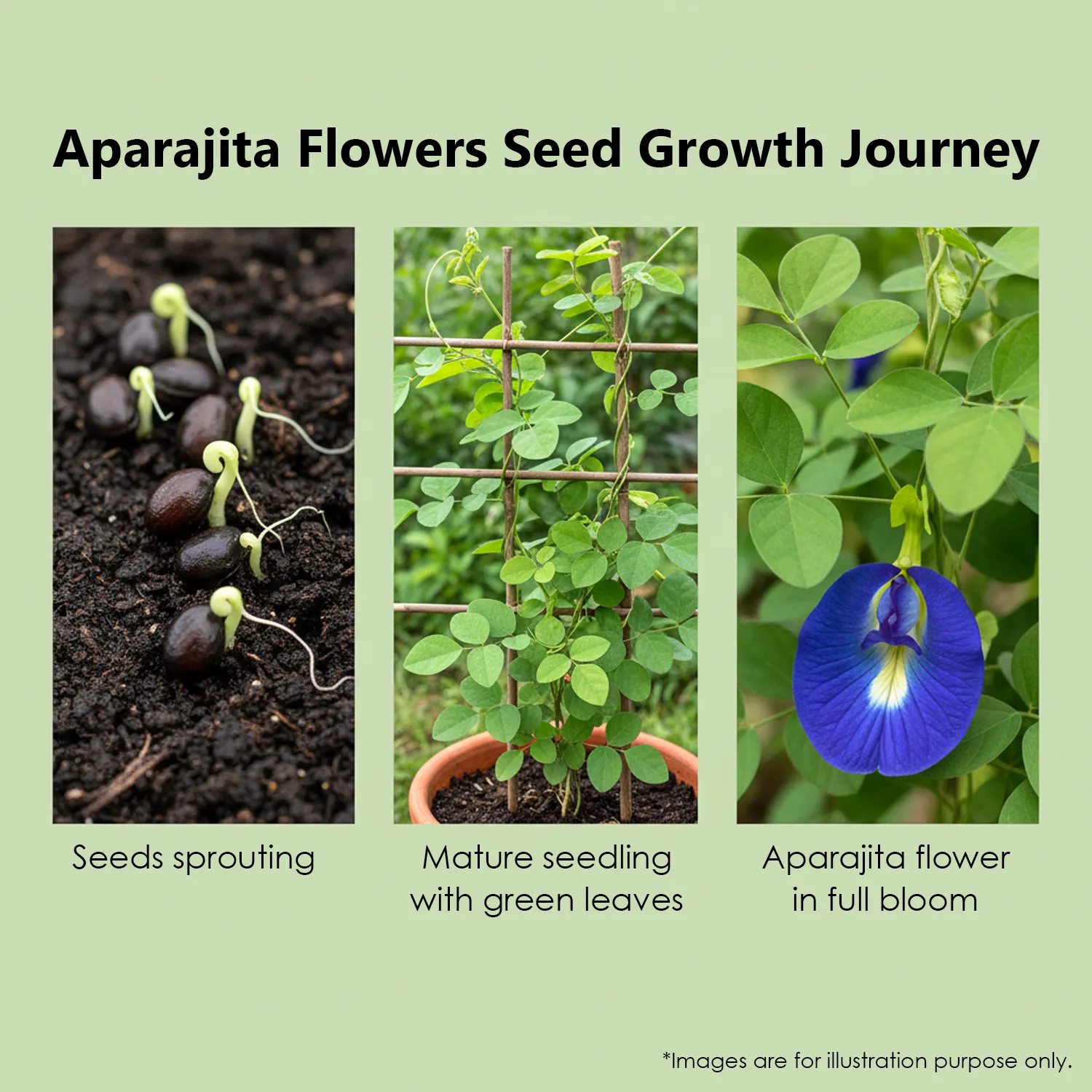
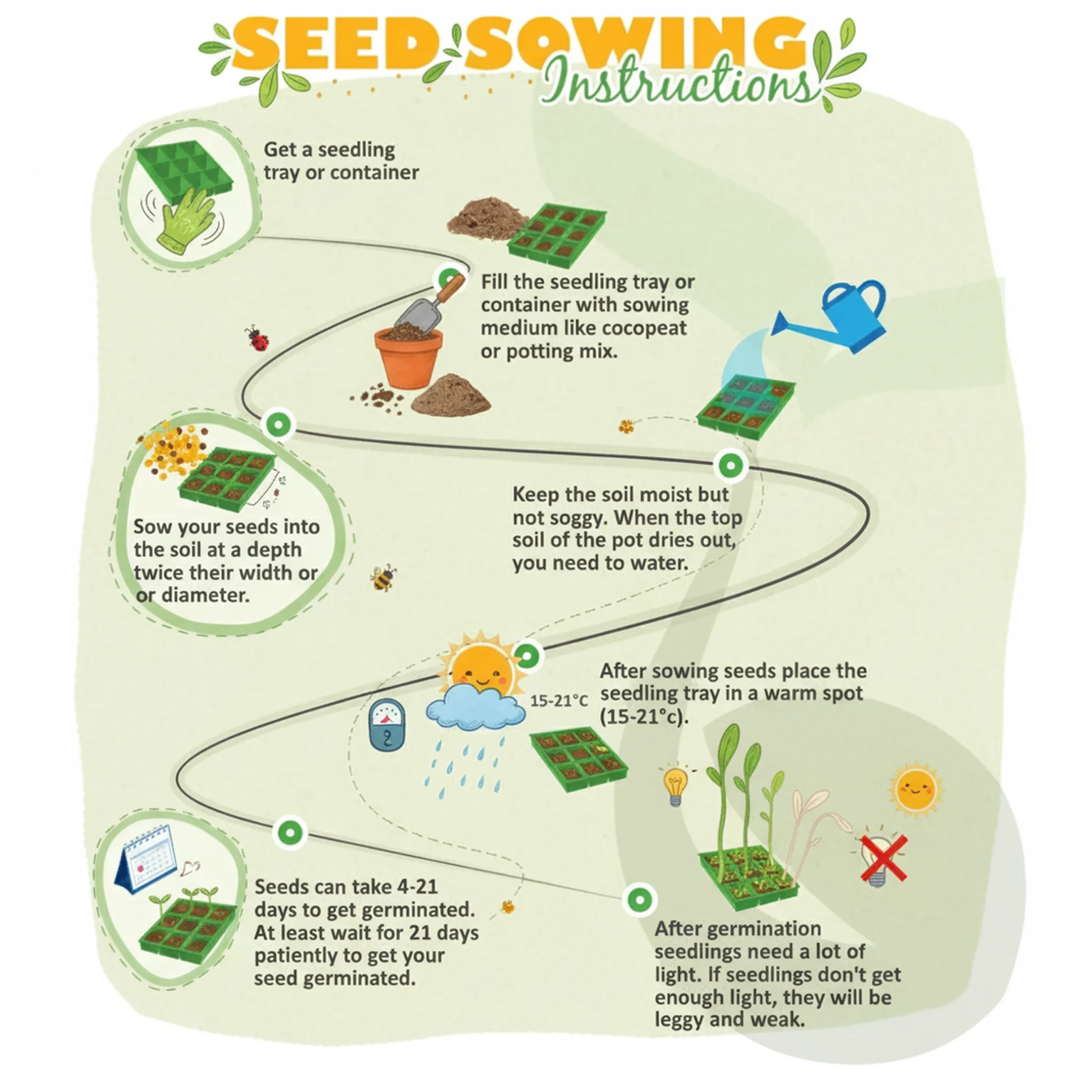



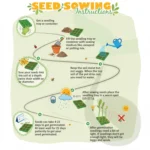

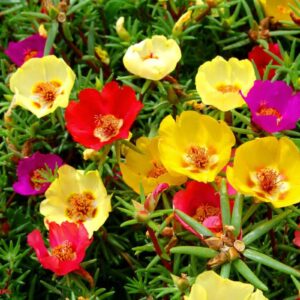




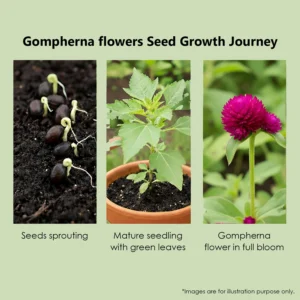

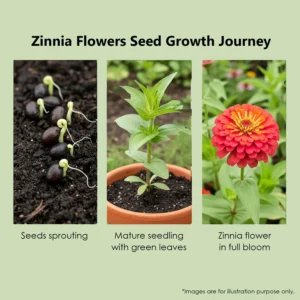




Reviews
There are no reviews yet